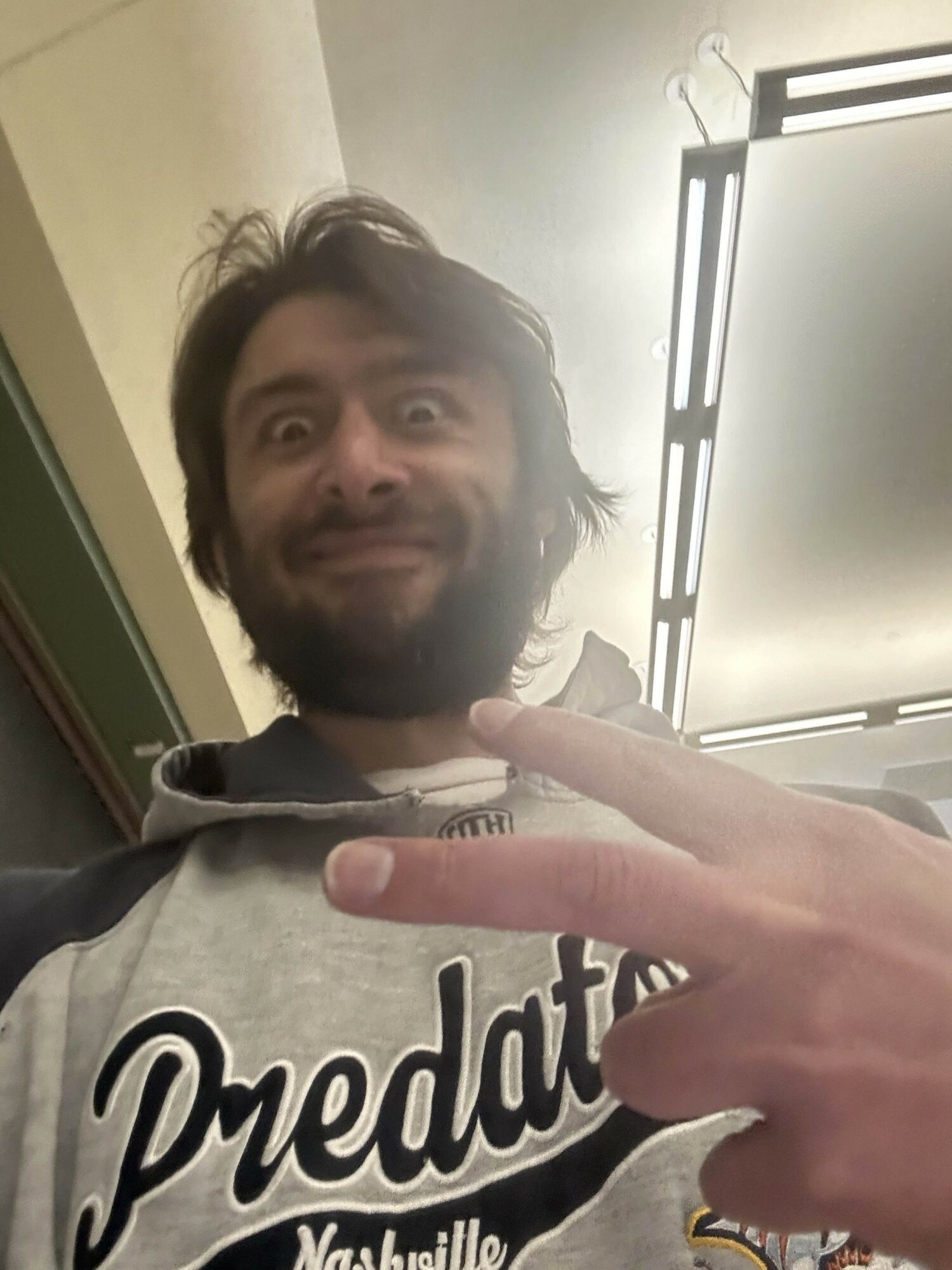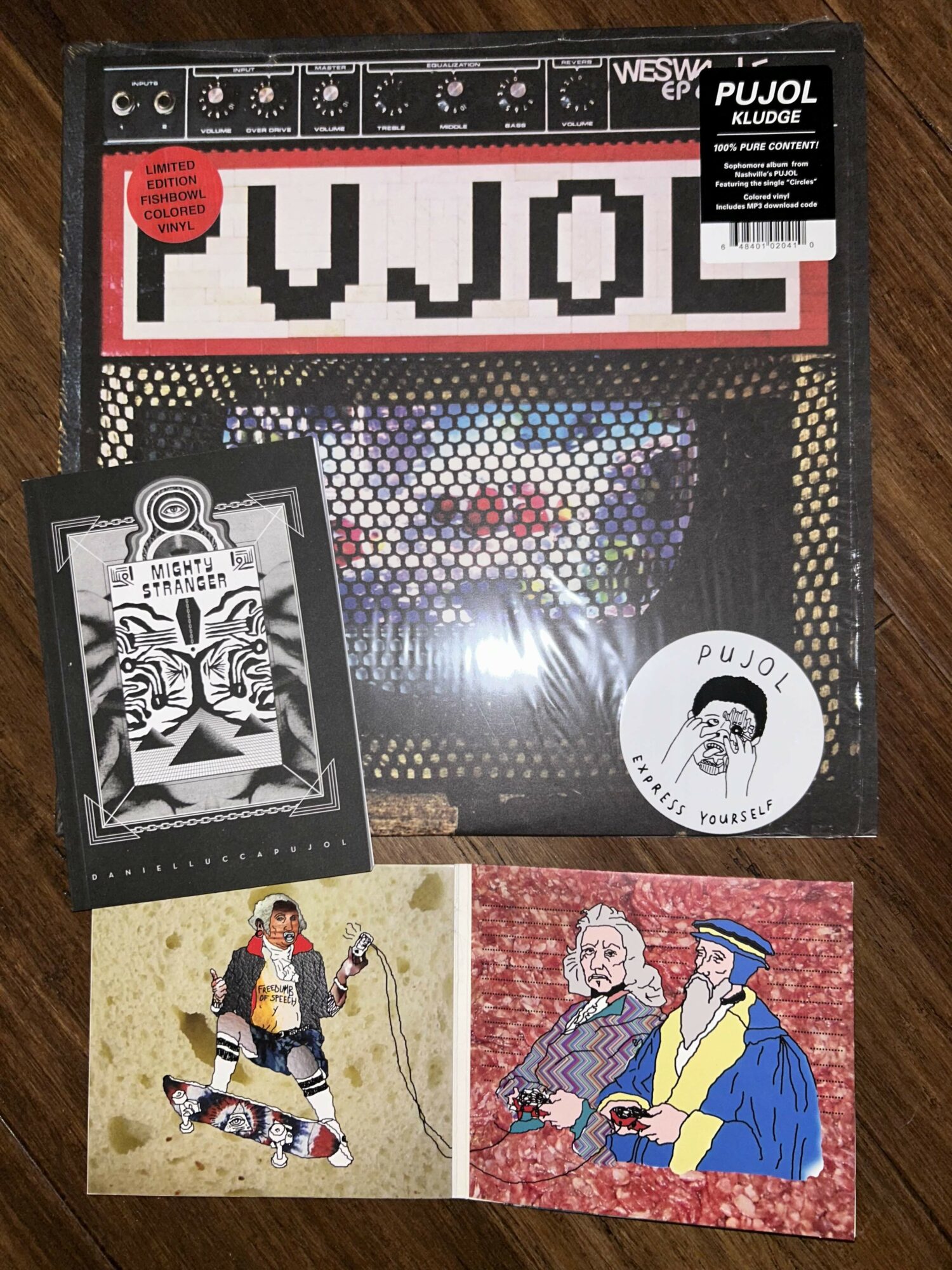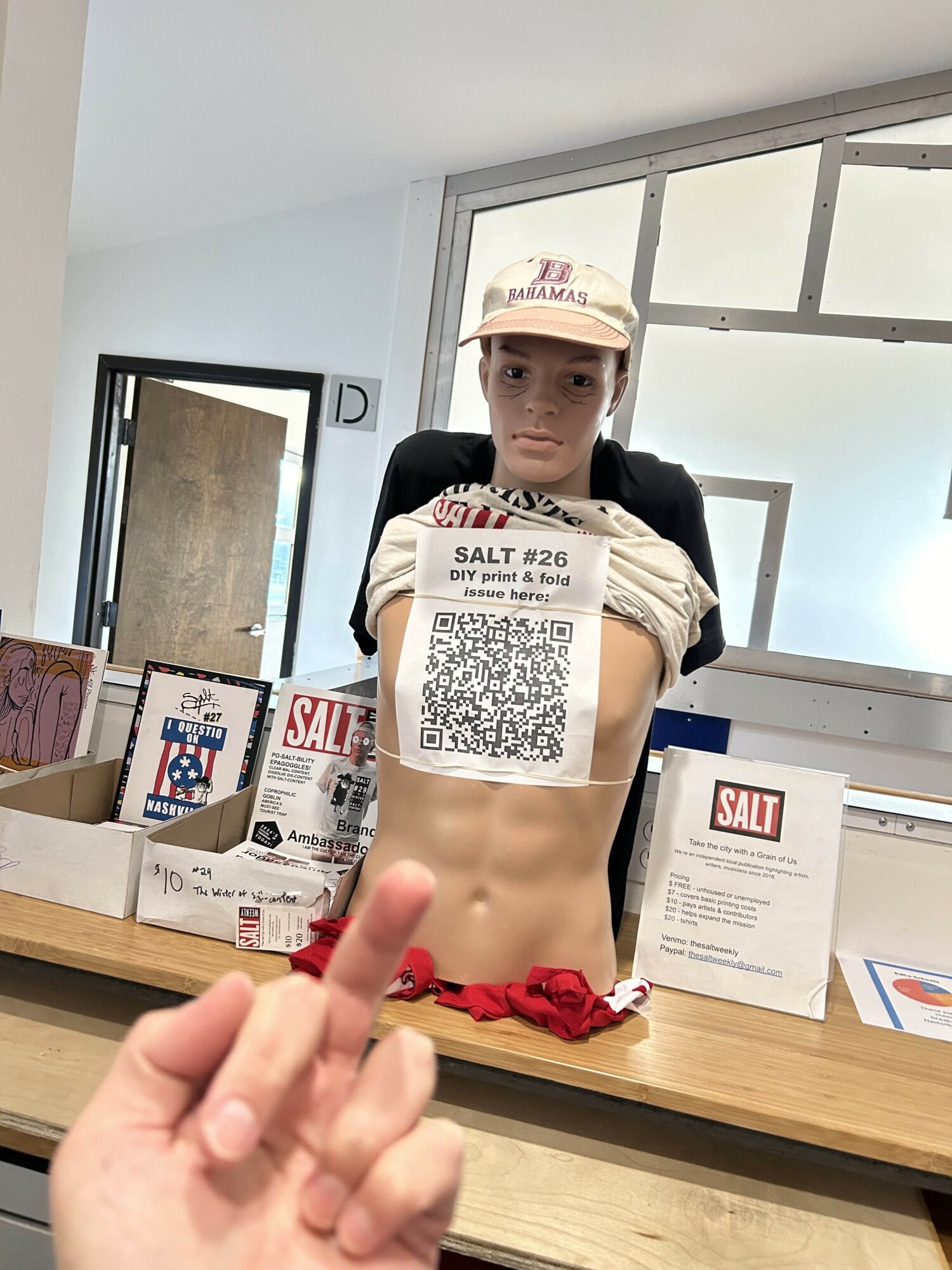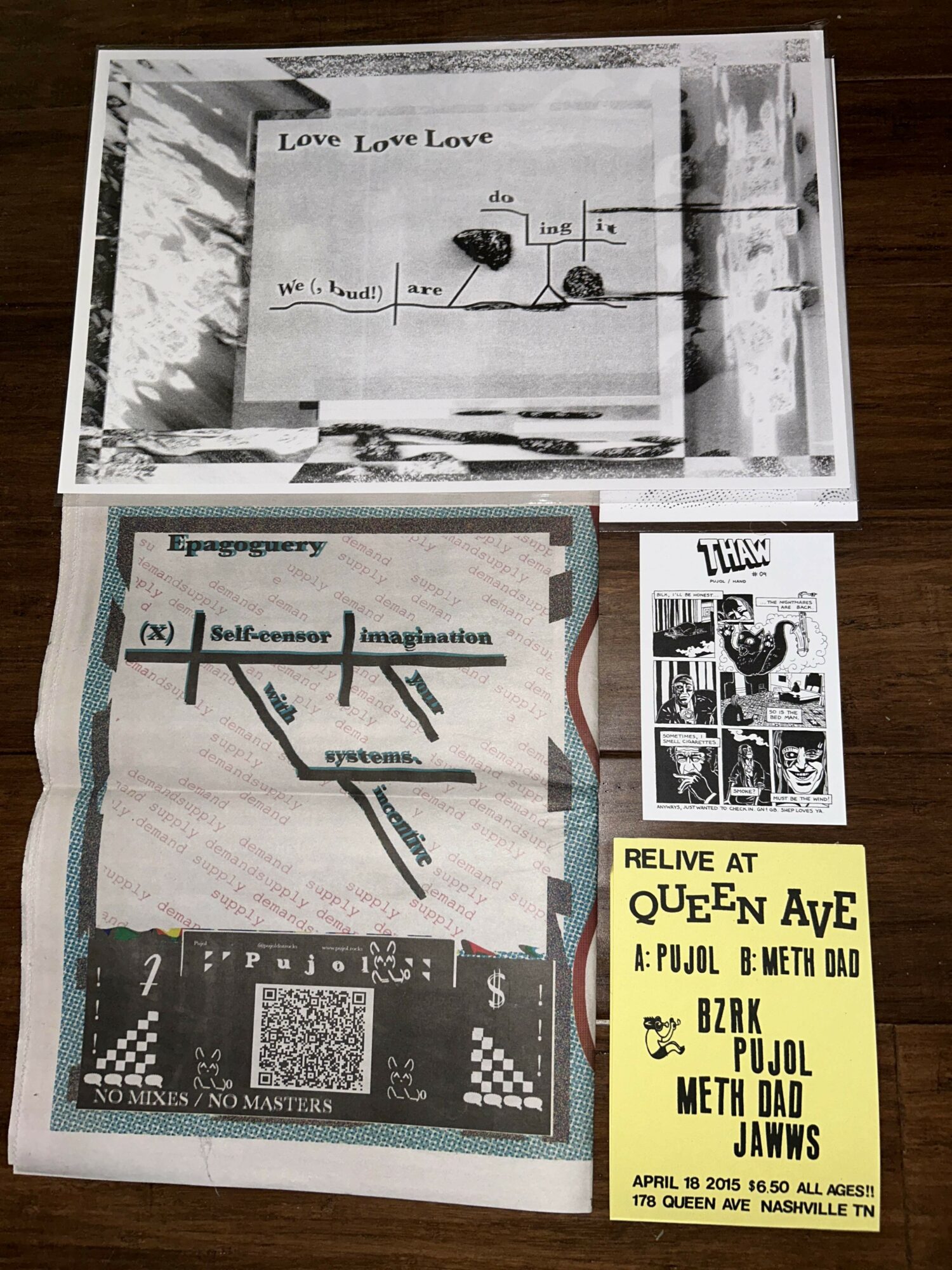

Today we’d like to introduce you to Daniel Pujol
Hi Daniel, please kick things off for us with an introduction to yourself and your story.
Well, there’s not much intentional linearity to my LinkedIn guru story. But it can be contorted into plot points that document my primary project: the exploration of song-as-artform, defined by my relationship with music. Basically, I take work that facilitates that project, and, reflexively, most of it seems to be a direct or indirect consequence of said project, even work that falls outside the immediate music industry: copy editor, performer, dishwasher, etc..
For example, around 2021, I started freelance writing (now via the design studio Zodiac Rabbit). My first clients recognized my lyric songwriting as proof of professional writing ability. How so? Just think about it; songwriting shares word choice, finite space, tonal, etc. concerns with other types of writing like grant, copy, or ghost writing. And in that sense, it’s all sudoku to me. But that doesn’t mean you want to read through a bunch of sentences with numerical dates in them; so I’ve twisted my tale into sections—like a balloon animal. See below.
2003-2008
I volunteered at Rocketown until they hired me as part-time music venue staff. That taught me how to promote and throw shows. It also enabled me to move to Nashville. Once here, I assembled a powertrio band called MEEMAW. We threw house shows in our basement—MEEMAWhouse—which taught me how to perform, and we recorded an EP titled Glass Elevator, which taught me how to record, especially home record (my favorite). Our shows and EP did well, artwise—and then, as you do, we celebrated by going on endless vacation: indefinite-to-infinite hiatus.
2009-2014
Because of MEEMAW, Rocketown, and the Great Recession, the majority of my post-grad work opportunities were in the music industry. I approached them as straight-up jobs—understanding I was fortunate to have mobility opportunities—and started touring under my solo moniker, PUJOL (now deescalated to the title cased Pujol). However, while doing that—having witnessed the arcs of 100+ metalcore-adjacent touring bands at Rocketown—I enrolled in an online graduate program to maintain interests outside both the music industry and monetized live performance.
And thus began years of minmax-touring, homework, and releasing recordings through a bouquet of boutique-to-bedroom entities like Infinity Cat, Third Man, Saddle Creek, Velocity of Sound, Evil Weevil, etc.. Highlights from this period include the 2011 Nasty Brutish & Short EP and the 2014 Kludge LP. Further, one of the aforementioned entities also hired me for warehouse work: assembling, packing, shipping records. So by 2014, I’d learned how to fully release records just like Rocketown taught me how to throw shows: on-the-job.
2015-2018
I applied those skills toward self and/or partnered Pujol releases with entities like Record Store Day for things like 2015’s faux-live lathe cut “Relive at Queen Ave.” Concurrently, I wrote a poetry chapbook titled Mighty Stranger that was published in 2016 by Ursus Americanus and began to routinely perform spoken word poetry. Thanks to local reading series like Chet Weise’s Poetry Sucks! and Eric Benick’s Life is Boring, there were local opportunities to develop spoken word chops, allowing me to officially incorporate poetry under the Pujol moniker.
But by late 2018, “touring-release-touring” (rewarded with, surprise, more touring) felt recursive. It’d taught me what it was going to teach me, and its opportunity cost kept complicating efforts to learn new “music-art-writing” stuff that I was actually interested in. To be brief, I am a multi-instrumentalist and, frankly, I’d rather invest in refurbishing a metal clarinet than 4 more van tires. So I quit ensemble touring, continued spoken word performance, and started the zine SALT Weekly with Jon Sewell of Packing Plant Gallery and Alex Lockwood of Elephant Gallery.
2019-2021
During Covid Lockdown, I made two categories: Want to Do and Need to Learn. I dedicated a few years to only pursuing those Wants and Needs. This predominantly consisted of taking remote music lessons, composing podcast OST/SFX, and short-form writing: zine subs, visual poetry, comic dialogue, etc.. Highlights from this period include the SALT Weekly Quaranzine issue, an ongoing Pujol series of diagrammed sentence-poems titled Affirmative, the Pujol/Hand postcard comic THAW, and a Trillbilly Worker’s Party spinoff podcast, Faces in the Corner.
2022-2024
My Affirmative series required me to study a bunch of writing textbooks, and, it just so happens, a handy “non-art” application of that knowledge is freelance writing. It’s a great way to subsidize my primary project—song-as-artform—because it has less opportunity cost than routine touring. Additionally, it’s allowed me to collaborate with my wife, Alexa Sullivant, on jobs outside the immediate music industry, which is fun. We just started a design studio to consolidate our writing, graphic design, and UX/UI research+design skills into one hirable entity: Zodiac Rabbit.
To date, I mostly do SALT Weekly, Zodiac Rabbit, and experiment with a new Pujol live show every ~6-8 weeks that is a combination of spoken word and songwriting performance. There’s other stuff too. But you’ll have to ask me about that at the grocery store.
I’m sure it wasn’t obstacle-free, but would you say the journey has been fairly smooth so far?
Obstacles and Challenges
Well, the most consistent challenge is that I don’t enjoy touring. I have no romantic feelings about it; it’s a professional obligation that is distinct from my interest in the performing arts. Why? Well, organizing and executing worthwhile tours has a high opportunity cost for solo artists. Ensuring every date, market, and bill are relevant-to-effective requires a lot of time and energy—and that is time and energy spent not making artwork.
When I entered the music industry, monetization had moved to live performance, not record sales “because of digital.” Consequently, songwriting was mainly valued as content for a crazy, cathartic, whatever live spectacle-show: an experiential commodity. And for me—beyond raunchy parody—that mode of songwriting doesn’t interest me. I want to explore songwriting-as-artform, not create content to fill stage time for a spectacle-show.
To make it tolerable, I drew from my experience in high school marching band, playing bass clarinet at both home and away games during football season. Economic reality became the artistic football field for Pujol live performance; songwriting’s vulnerability to market forces, contemporaneous with Great Recession precarity, became a generative prompt. This meant I presented my solo songwriting within motifs—like marching band field shows—that were riffs on period criteria for “viable live performance”: twang-metal, pub-punk, beefcake backing band, etc. And that was instructive until about 2017.
By then, I felt like I’d toured the rock-adjacent circuit enough to determine that, regardless of presentation motif, my songwriting is simply too lyric-driven to be a scalable spectacle-show. Especially since my songwriting isn’t a means for ritual participation ala breakdowns or hardcore dancing in metalcore. I’ve worked 100+ metalcore shows and done my own tours; I know. If audiences can’t hear my lyrics, this means a spectacle-show is, really, only accessible to audiences who already know the words.
And if new audiences can’t hear the words (and subsequently understand how their melodic phrasing interacts with key or counterpoint riffs), what is going to reliably retain them in contrast to the other 100 live acts who optimize their songwriting for spectacle-show? Therefore, if new audiences aren’t easily retained via this presentation within the rock-adjacent marketplace, why should I heavily invest in its spectacle-shows?
Listen, I respect, and have opened for, and can hang with acts who climb the ceiling and fart into the microphone. But I’m not going to thrive in their market; even if I’m received by its purveyors as a legitimate peer. So—while they can be fun—there’s a fundamental tension between my songwriting and its presentation within the live performance marketplace as an experiential commodity-spectacle. This means I have to constantly assess the opportunity cost of touring and live performance against the interests and objectives of my primary project: songwriting-as-artform.
Sure, it makes me a bit of an outlier. But that’s not bad. I remain free to move amongst a plurality of social and professional environments—because I’m not on tour all the time. And this has enabled me to leverage freelance writing for monetization and workshop elements of spoken word into songwriting performance. But who knows, maybe someday I’ll climb the ceiling and fart into a microphone; I do already burp into them.
Thanks for sharing that. So, maybe next you can tell us a bit more about your work?
Like I said above, I do work that facilitates my primary project. But enough about me. It’s time, like David Lee Roth, to utilize direct address: If you want to support my artwork, you can book me or hire me.
I perform, speak, or lecture as Pujol. To book me, email me at [email protected].
I freelance through Zodiac Rabbit. You can hire me for copy editing, ghostwriting, book proposal writing, etc. via [email protected].
Pricing:
- Rates change per medium. Holler.
Contact Info:
- Website: https://pujol.rocks/
- Instagram: https://www.instagram.com/pujoldotrocks/
- Other: https://www.zodiacrabbit.com/















